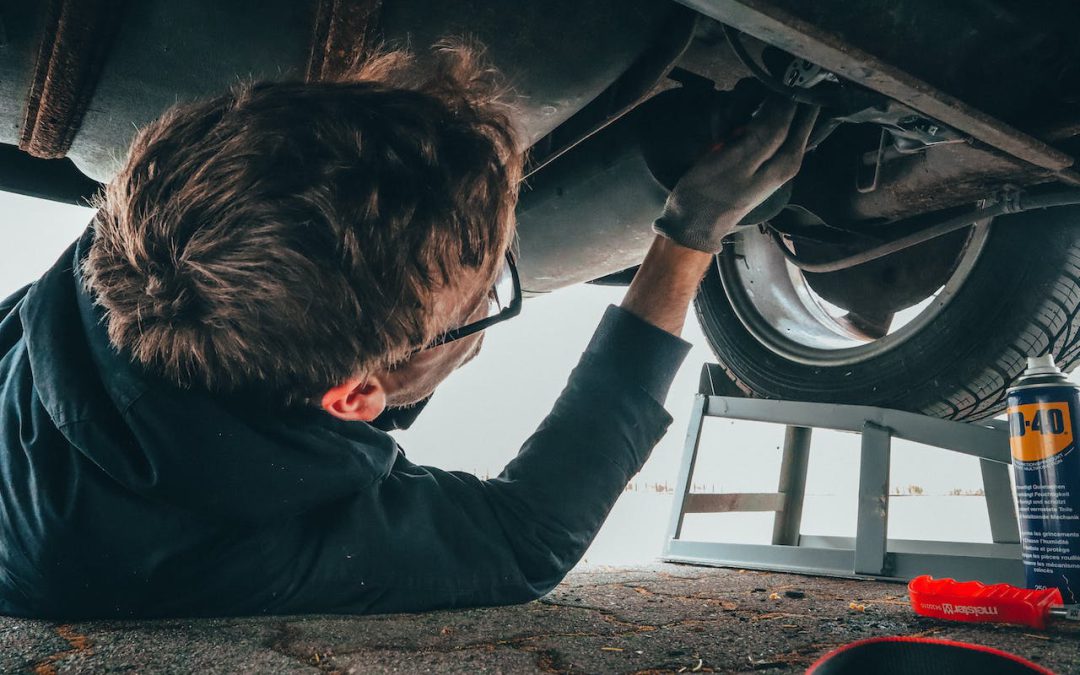Your Anti-lock Braking System (ABS) is one of the most critical safety features in your vehicle. It helps prevent your wheels from locking up during braking, allowing you to maintain steering control even in slippery conditions. However, like any other part of your vehicle, the ABS can develop issues over time. Ignoring these issues can lead to compromised safety on the road. Here are 10 signs that your ABS needs a checkup, along with explanations for each.
1. ABS Warning Light Illuminates
Explanation: The most obvious sign that your ABS needs attention is when the ABS warning light on your dashboard comes on. This light is connected to the ABS system’s self-diagnostic feature, which monitors the system’s performance. If the system detects an issue, the light will illuminate. Common causes include a malfunctioning sensor, a broken wire, or an issue with the ABS module. When this light is on, your ABS might not be functioning properly, and your vehicle may revert to standard braking, which can be dangerous in certain conditions.
2. Pulsating Brake Pedal During Normal Braking
Explanation: Under normal circumstances, your brake pedal should feel firm and responsive. However, if you notice a pulsating sensation in the brake pedal during regular braking (not in emergency situations), it could indicate a problem with your ABS. The ABS modulator valve could be malfunctioning, causing the pulsations. This issue can lead to uneven braking and reduced control over your vehicle.
3. Increased Stopping Distance
Explanation: One of the primary functions of the ABS is to reduce your vehicle’s stopping distance during hard braking. If you notice that your car is taking longer to stop than usual, your ABS might not be functioning correctly. This could be due to worn brake pads, faulty sensors, or problems with the ABS hydraulic pump. Increased stopping distance can be dangerous, especially in emergency situations where every second counts.
4. No Brake Pedal Response
Explanation: If you press the brake pedal and there’s little to no response, it’s a clear sign of a brake system issue, potentially related to the ABS. This could be caused by air in the brake lines, a failing ABS module, or a severe issue with the brake fluid. In such cases, your vehicle might not stop as expected, putting you and others at risk.
5. Grinding or Squealing Noises During Braking
Explanation: Unusual noises like grinding or squealing when you apply the brakes could be a sign of worn brake pads or rotors. However, if these noises are accompanied by an ABS warning light or pulsations in the brake pedal, it could indicate a problem with the ABS system. The ABS modulator might be stuck or malfunctioning, causing these noises and potentially damaging the braking system further if not addressed.
6. Brake Pedal Feels Too Soft or Too Hard
Explanation: Your brake pedal should feel firm and responsive when you apply pressure. If the pedal feels too soft, spongy, or too hard, it could signal an ABS issue. A soft pedal might indicate air in the brake lines or a leak in the brake fluid, while a hard pedal could suggest problems with the ABS modulator or the brake booster. Both conditions can affect your vehicle’s braking performance and require immediate attention.
7. Vehicle Pulls to One Side During Braking
Explanation: If your vehicle pulls to one side when you apply the brakes, it could be a sign of uneven brake pressure distribution, possibly due to a malfunctioning ABS. This could happen if one of the ABS sensors is not working correctly, causing the system to apply different levels of braking force to each wheel. This uneven braking can lead to loss of control, especially in slippery conditions, making it crucial to get the ABS checked.
8. Frequent ABS Activation
Explanation: The ABS is designed to activate during emergency braking or when it detects that a wheel is about to lock up. However, if you notice that the ABS is activating frequently during normal braking, it could indicate a problem. This might be due to faulty wheel speed sensors that incorrectly signal to the ABS that a wheel is locking up. Frequent ABS activation can lead to premature wear of the braking components and reduced braking efficiency.
9. ABS Fluid Leaks
Explanation: The ABS relies on hydraulic fluid to function properly. If you notice any fluid leaks under your vehicle, particularly near the wheels or the ABS modulator, it could be a sign of a leak in the ABS system. Fluid leaks can lead to a drop in brake fluid levels, causing the ABS to malfunction or fail. This can severely compromise your vehicle’s braking ability and should be addressed immediately.
10. Unusual Vibrations During Braking
Explanation: While some vibration in the brake pedal is normal when the ABS activates during hard braking, unusual or excessive vibrations during regular braking can be a sign of a problem. This could be due to warped rotors, an issue with the ABS modulator, or worn brake components. Unusual vibrations can affect your ability to control the vehicle during braking, making it important to have the ABS system checked.
Conclusion
Your Anti-lock Braking System (ABS) plays a vital role in ensuring your safety on the road by preventing wheel lock-up and maintaining steering control during braking. However, like any mechanical system, it can develop issues over time. Paying attention to the signs listed above can help you identify potential problems with your ABS before they lead to more serious issues.
If you experience any of these symptoms, it’s essential to have your ABS system inspected by a professional mechanic as soon as possible. Ignoring these warning signs can compromise your vehicle’s safety and increase the risk of accidents, especially in emergency situations where the ABS is most needed.
Regular maintenance and timely checkups can help keep your ABS in optimal condition, ensuring that you and your passengers stay safe on the road. Remember, a well-functioning ABS system is not just a convenience—it’s a crucial part of your vehicle’s safety mechanism.
In conclusion, understanding these 10 signs can help you catch ABS issues early, potentially saving you from costly repairs and ensuring that your vehicle remains safe to drive. Don’t wait until it’s too late—stay proactive and keep your ABS system in top shape.

Are You In Need of Expert ABS Installation and Maintenance Services?
If you’re searching for a trusted expert in Anti-lock Braking System (ABS) installation and maintenance with a stellar reputation, look no further than autoTECH Blackhawk. Why choose us for your ABS needs? We stand out among independent automotive service providers by prioritizing strong customer relationships. This commitment allows us to tailor our services to your specific driving style and needs, especially when it comes to ABS.
Whether your goal is to enhance the safety of your everyday vehicle with a new ABS, maintain the effectiveness of your existing ABS, keep your cherished car in peak condition, or even educate your family about ABS functionality and maintenance, we’re here to help you achieve your automotive goals. We also take pride in offering an industry-leading 3-year/36,000-mile warranty, using only Original Equipment and manufacturer-recommended parts to ensure your complete satisfaction. Don’t hesitate to contact our friendly team today to schedule a convenient and contactless appointment!


